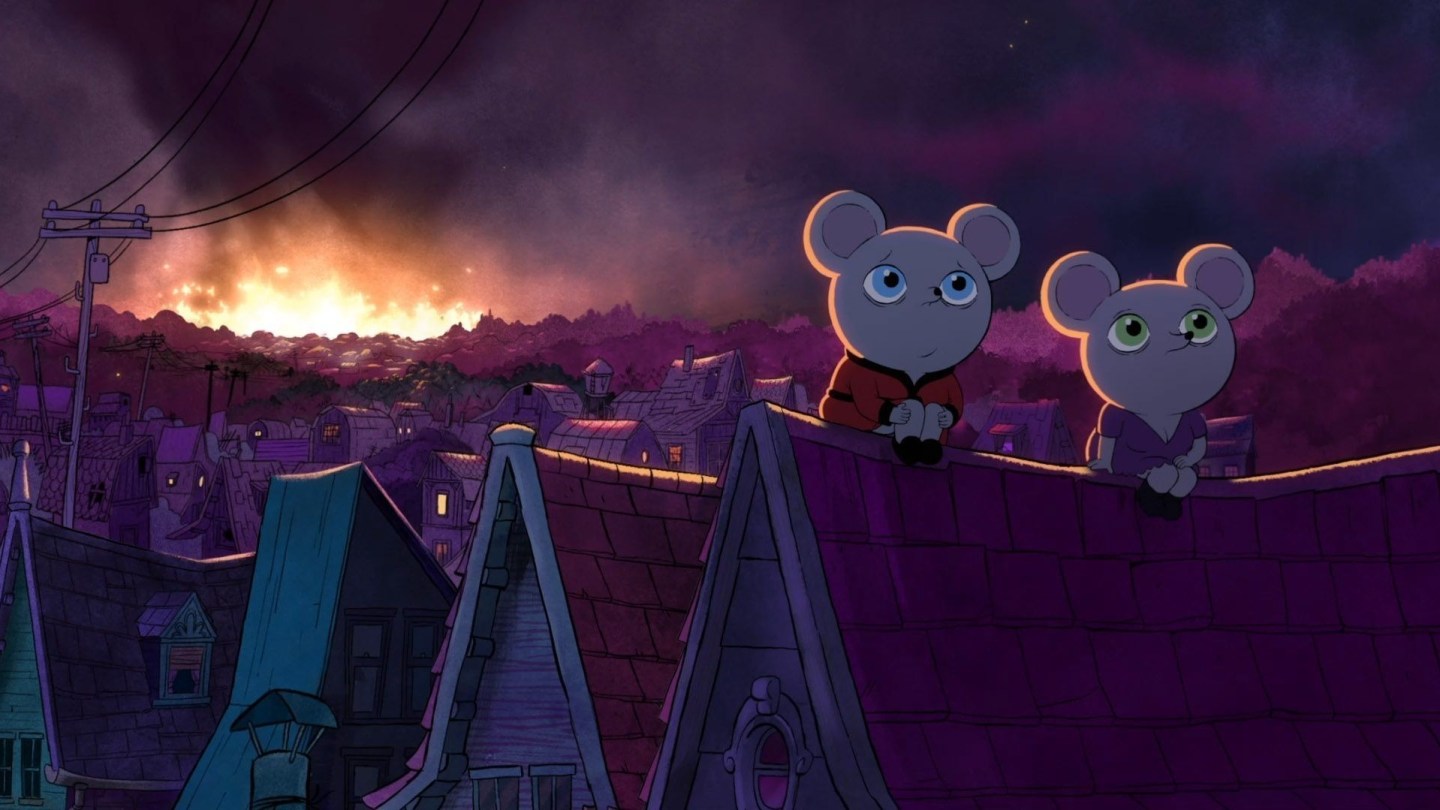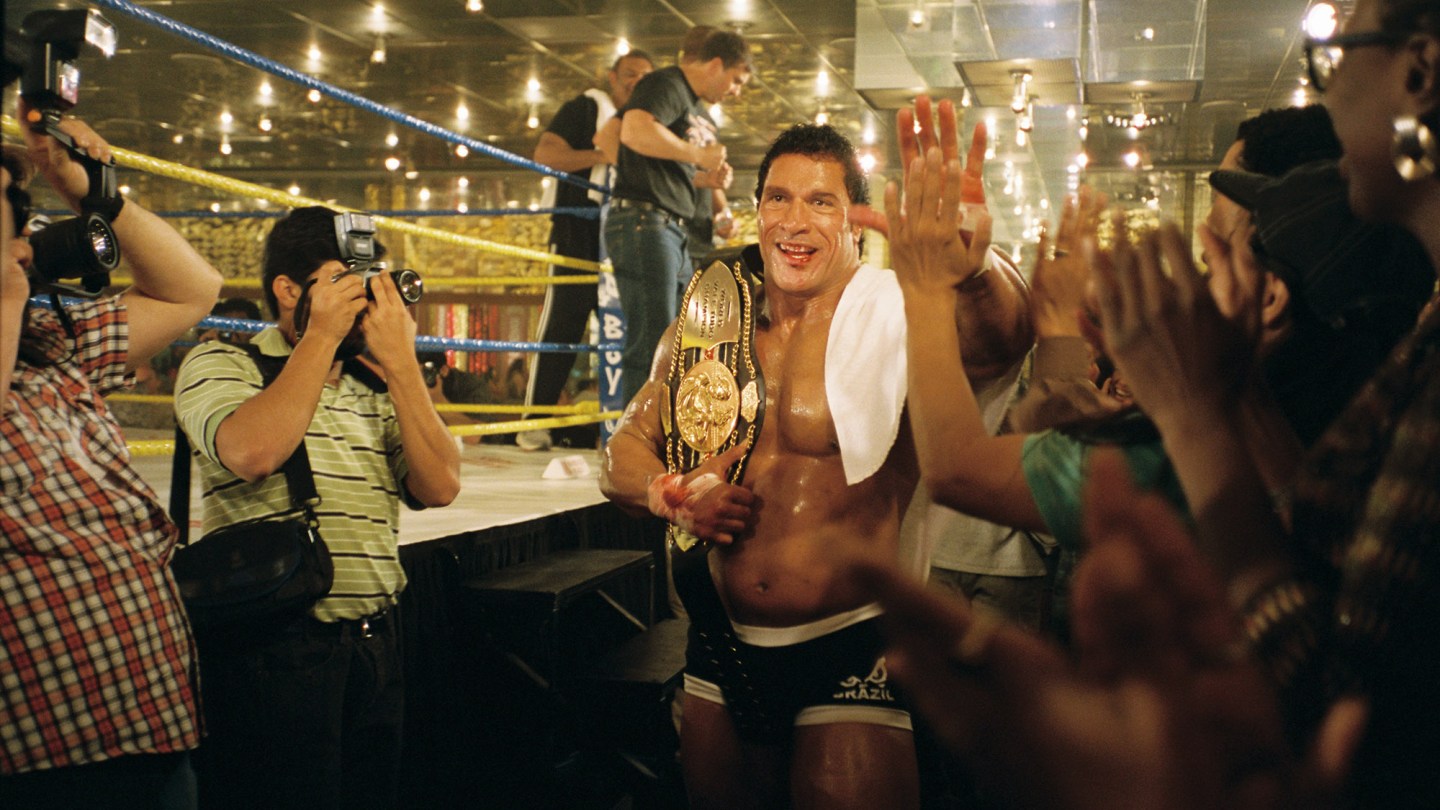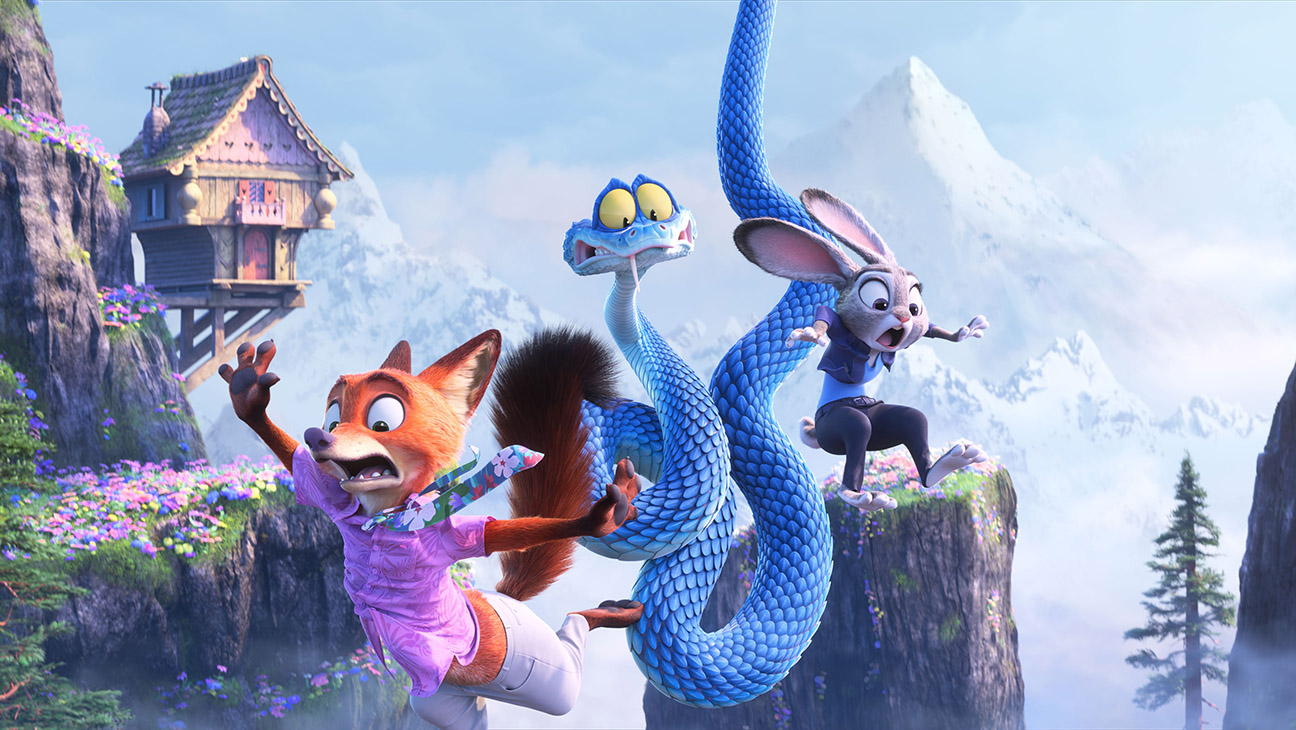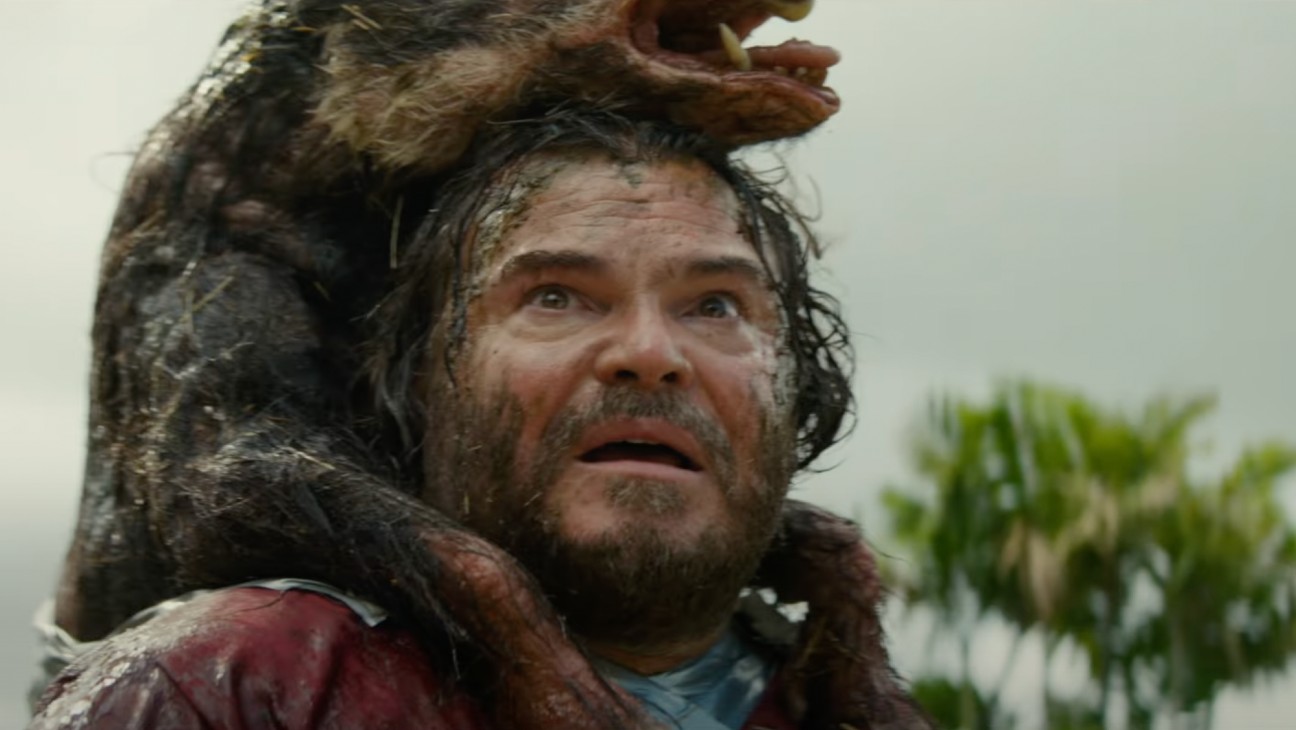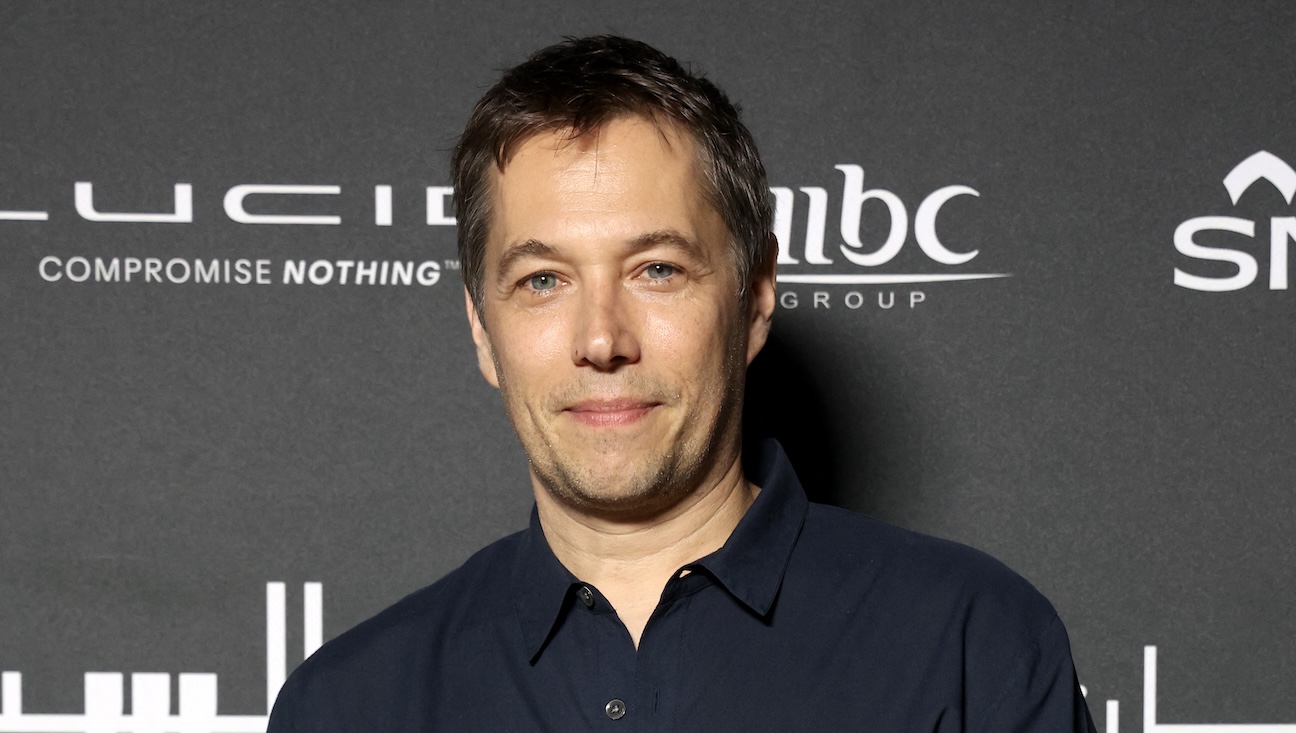Beware! When you enter the animated, dystopian world of Spanish comics and animation creator Alberto Vázquez’s Decorado, you may shed some tears – tears of laughter, sadness, frustration, or all of the above. The new feature from the director, who has won best animated feature film Goya Awards for his Birdboy: The Forgotten Children and Unicorn Wars, world premiered at Austin’s Fantastic Fest.
After traveling to Ottawa, Sitges, and the BFI London Film Festival, it is next featured in the Just Anime section of the 29th edition of the Tallinn Black Nights Film Festival (PÖFF), which opens on Friday. The fest runs Nov. 7-23, with the film first screening on Nov. 9.
“Arnold, a middle-aged mouse in existential crisis, lives in constant suspicion: unlike his wife María, he has long felt that the world is unreal, a fake, like a film set,” reads a synopsis on the Tallinn website. “Arnold decides to rebel against society,” confronting friends, neighbors, and an almighty corporation ruling his world, known as ALMA (Almighty Limitless Megacorporative Agency).
Vázquez co-wrote Decorado, from producer Abano Producions, with F. Xavier Manuel. The voice cast features Chelo Díaz, Damián Cortés, Gaspar González Somoza, and Luís Iglesia Besteiro.
THR caught up with Vázquez to discuss the real-world, Hollywood and other creative inspirations for Decorado, the world as a stage, and why he likes to unsettle the audience.
I watched Decorado and wondered about the cinematic and literary influences and references I sensed, including Disney, Brave New World, and perhaps also The Truman Show. Could you highlight the key references and why they were important to your life and this story?
Decorado has several influences. On one hand, there are the classic animated cartoons – Looney Tunes, Fritz the Cat, Mickey Mouse – and also some more visual references, such as Mary Blair’s work in classic Disney. I’m interested in that tradition of animation that appears innocent and charming on the surface but has something strange and even unsettling underneath.
On the other hand, there is a clear influence from dystopian works. 1984 by Orwell, Fahrenheit 451, Brave New World by Aldous Huxley, or the British series The Prisoner from the 1970s. Also, The Truman Show. That whole subgenre of science fiction that deals with constructed realities, surveilled societies, and the idea that the world can be a stage is something that interests me a lot.
To all of this, I add an absurd, slightly dark humor that relates to filmmakers like Buñuel. The Phantom of Liberty or The Exterminating Angel are very important films to me for the way they speak about the absurdity of existence. Even Scenes from a Marriage, by Ingmar Bergman, although very different, influenced me in the more intimate and emotional part of the story.
I take all of that, put it in a box, shake it… and Decorado comes out.
Why do you like to tell your stories in the form of fables?
Fables and fairy tales allow me to speak metaphorically about society. Anthropomorphic animals are universal; they are present at the origins of animation and comics, and they don’t belong to a specific place or time. That means the story doesn’t have a fixed national identity — you don’t know if it is Spanish, French, American, or Japanese. And that interests me, because it opens the interpretation and allows anyone to project themselves into it.
Why were you interested in exploring the meaning of life and the world as a film set or stage for our performances? This question of what is real and what is fake seems key again today in the age of social media and fake news.
This film is a reflection, a mirror, of our current society. I think we are experiencing a huge paradigm shift: hyperconnectivity, social media, superficial relationships, wars, megalomaniac leaders… It’s a society in constant change and, with artificial intelligence, I would even say we are reaching a kind of end of reality.
I wanted to talk about these societal crises and how they affect individuals. Many people feel as though they are living on a stage, where everything is a performance. We have all felt like Arnold at some point in our lives.
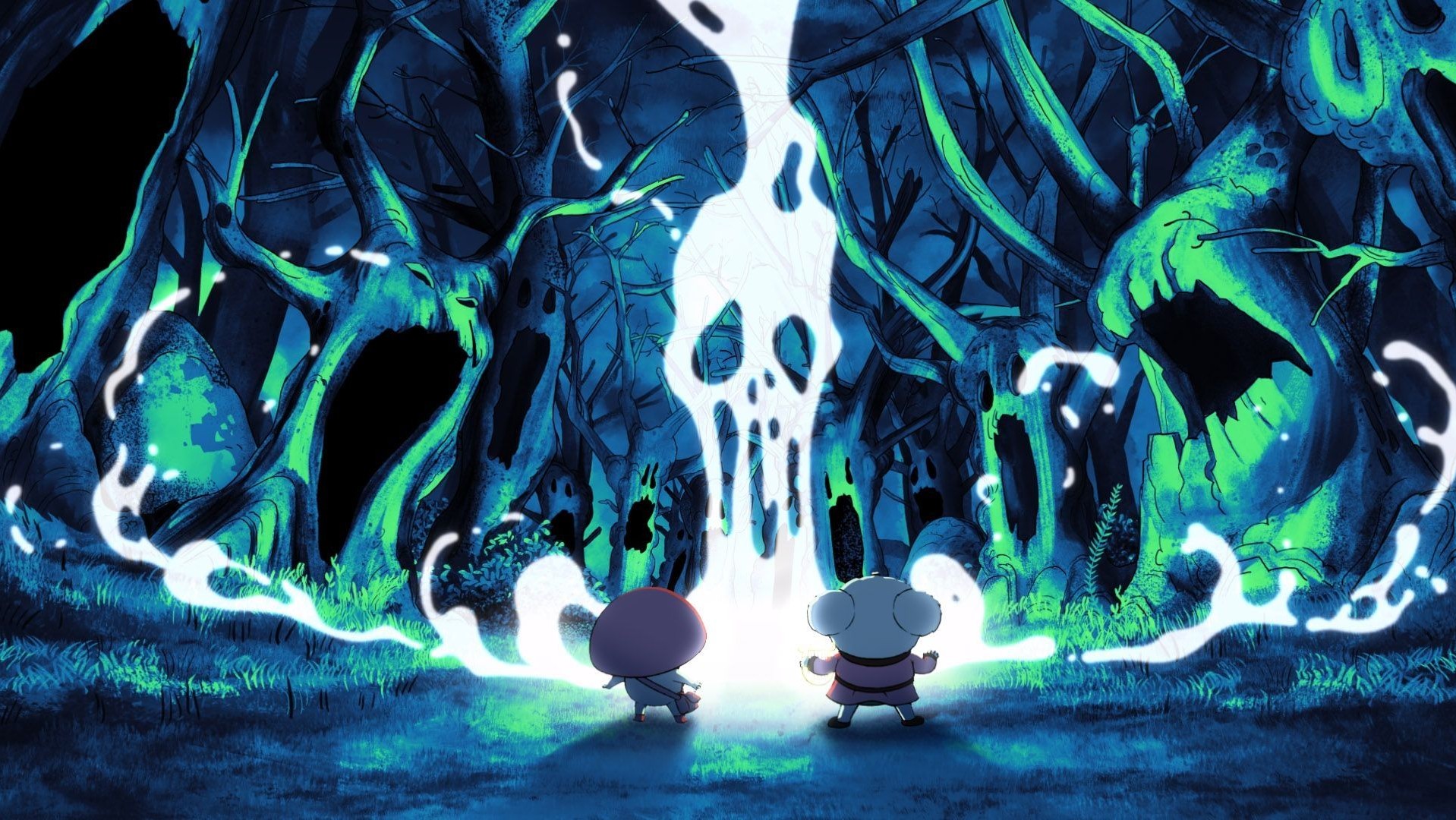
There are also such dark social themes in the film as corporate power, media control, social injustice, unemployment, poverty, drugs, mental health, police-state dynamics, and violence. Were you commenting on specific issues and figures in today’s world, or speaking more generally about life?
Both. As I said, I work with the crises of our society. There is a medical crisis — some characters medicate themselves to be happy, others turn to drugs. A labor crisis — Arnold has no job, María has a conflicted relationship with her artistic work. They are also close to losing their home, near social exclusion. And this leads them, and the other characters, to an existential crisis: what is the meaning of our lives?
These three crises affect the main characters and ultimately lead to a marital crisis. All of this is intertwined with the presence of a large corporation called ALMA (Almighty Limitless Megacorporative Agency), which is like Google, Amazon, and Monsanto combined — it produces everything and controls everything.
Do you think of yourself as an existentialist? If the world is a stage we cannot escape, what can we do? How can the mice in the film inspire us?
I don’t know if I would call myself an existentialist, but I am very interested in that question: what is the meaning of all this? The characters live in a world they did not choose, and I think that happens to all of us. The mice don’t have big answers, but they try to live and question the decor. And maybe that’s the key: we can’t escape the stage, but we can look at it, laugh a bit, and move forward.
As Pato Ronnie says at the end of the film: “Arnold, everything is a stage — but at least it’s our stage.” I’m a fairly sarcastic and cynical author, and I think this film asks many questions, but it doesn’t offer many answers. What I did want to say is that true friendship and love can save us from many of the problems of our ultracapitalist world. Those five or six people who will always be there — where you can be yourself — that’s what matters. The film is a statement in favor of genuine friendship and love, and against superficial relationships.
One character says, “No one’s interested in auteur cinema,” which made me laugh. How did you and your co-writer come up with this line, and why did you include it?
This line appears in a part of the film where we talk about the life of Pato Ronnie, who is a parody of Donald Duck. He was a child prodigy, he was exploited, and later ends up in a hell of drugs and alcohol. At one point, he works in auteur cinema, and that made us laugh because it has a layer of meta-humor.
Xavi Manuel, my co-writer, and I work precisely in this type of cinema. And it’s funny, because even if auteur cinema wins awards and gets good reviews, sometimes it doesn’t reach many people — due to distribution issues or because audiences simply cannot access it. So the line is a joke, but also a little bit true.
Do you know what you will do next in film or comics?
Honestly, I don’t know. I’ve been working non-stop for about 14 or 15 years — short films, feature films, books, illustration… And right now I feel I need to stop for a moment and think about what I want to do with my life.
Maybe I’ll make another film, maybe not. I do have some new projects; for example, I’m beginning to work in the world of video games, and maybe my path is there. But at this moment, what I really need is to rest and gain some perspective.

